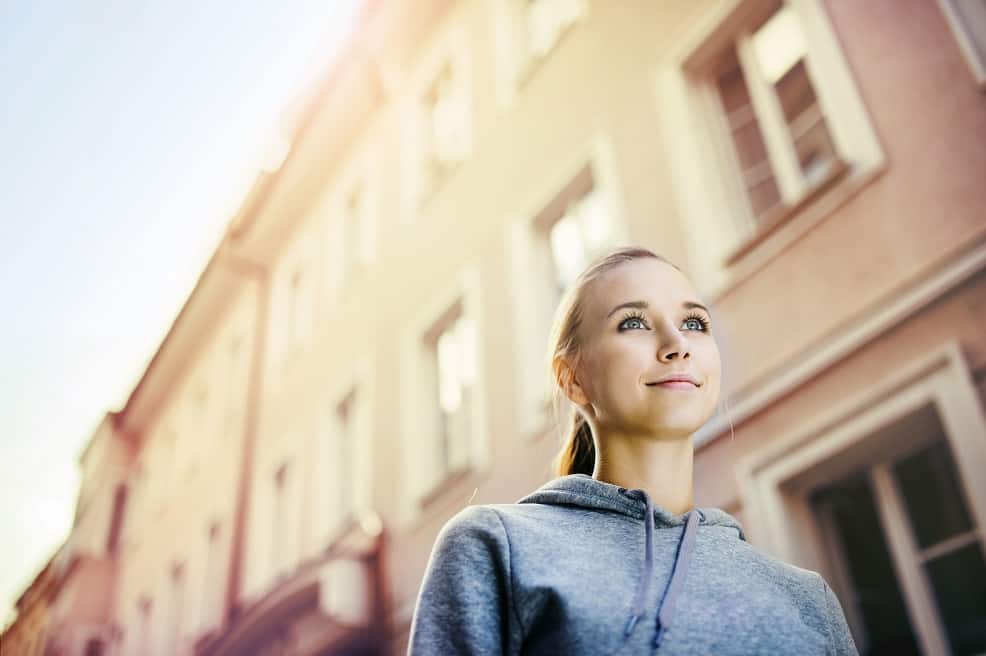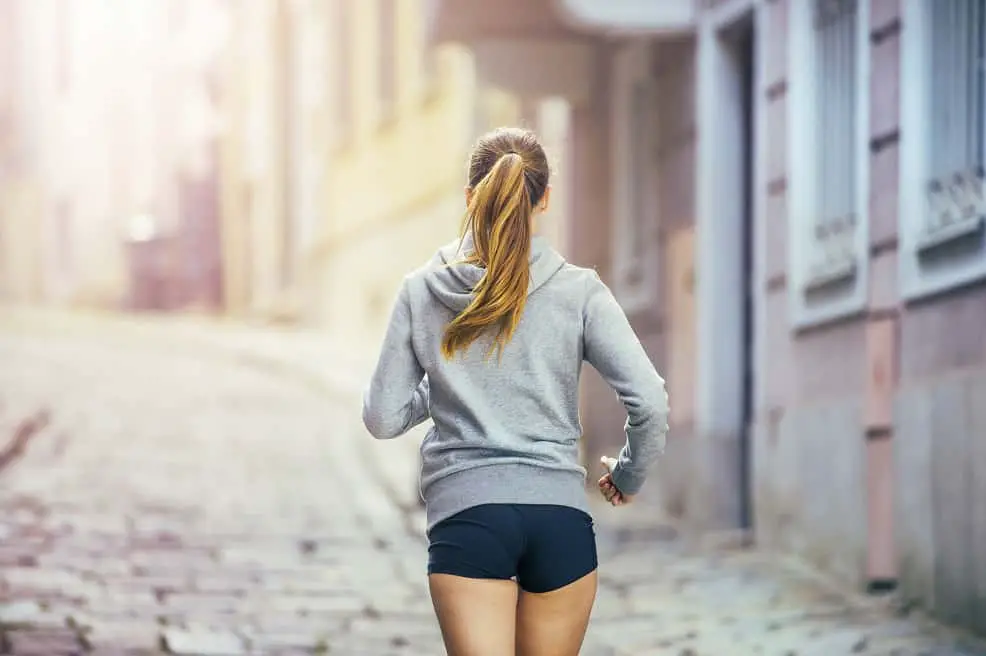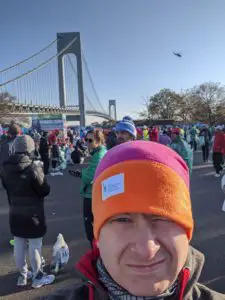I investigated this from three angles:
- Does running marathons make you look older faster?
- Does training for and running marathons make you feel older faster?
- Are there any unseen aging effects as a result of running marathons?
Table of Contents
Does running marathons make you look older faster?
Running marathons can lower your average body fat, making you look trimmer and healthier, but it might also make you look older.
Studies have shown that running with lower-than-average body fat may cause a runner to have a thinner face, which many believe will make someone look older faster.
Thinner faces show lines and wrinkles more, not having the fat cells to plump things up. This even has a name; it’s known as runners face.
Running In The Sunshine: Some Practical Advice
Sunshine can energize you, but overexposure to the sun’s rays can cause skin damage down the road.
If you love running on bright, sunny days, protect yourself from skin damage and exposure to free radicals produced by ultraviolet light.
Sunscreens will help protect your skin from sunburn and premature aging, while wearing light-colored clothing with long sleeves and a hat when running in sweltering conditions may reduce your exposure to free radicals.
In addition, you should consider reducing your outdoor activity in the hottest hours of the day and drinking extra water. Staying safe in the sun while running will ensure you have many more enjoyable runs in the sunshine.
Here are some practical tips:
- Don’t run in the sun
- Wear sunscreen
- Cleanse your face
- Use aftersun after you’ve cleaned up
- Have a healthy diet
- Hydrate, Hydrate, Hydrate
Does training for and running marathons make you feel older faster?
Training for and running marathons can be an intense undertaking, but it doesn’t necessarily make you feel older sooner.
Marathons and marathon training can give people more energy, help them stay fitter, and make them feel stronger. With a dedicated training regimen geared towards marathons and the increased fitness goals that come with the events, people have reported feeling invigorated after a long run as opposed to feel worn out or older.
It’s also important to remember that participating in marathon events also serves as a mental challenge that helps participants build inner strength, which can better protect against aging faster than expected.
Are there any unseen aging effects as a result of running marathons?
It is commonly believed that participating in activities such as training and running marathons leads to an accelerated aging process; however, studies have found this is not the case.
Studies have proven that contrary to the stereotype of the aging runner, marathon training has decreased joint and muscle aches and positively affects energy levels.
It also increases overall well-being and boosts heart health, providing many benefits for those seeking an active lifestyle.
Contrary to preconceived notions of age acceleration from marathons and long-distance running, these activities are healthy alternatives for slowing aging.
You Can’t Fight The Aging Process
Collagen, the main structural protein of the skin, is essential for maintaining our youthful appearance.
Unfortunately, collagen production decreases as we age and can lack the vibrancy it once had in our teenage years.
Collagen also acts as the glue that holds our body together and keeps us healthy by strengthening joints and protecting organs.
Although collagen production decreases over time, a balanced diet with adequate vitamin C intake can help limit collagen depletion and keep us healthy later.

What Is The Average Lifespan Of A Marathon Runner?
The average lifespan of a marathon runner can vary greatly depending on many factors, including lifestyle and genetics. It is common for runners to remain active well into their 60s and 70s. Many even compete in longer events until they are eighty or older.
Of course, this depends heavily on the individual’s physical conditioning and health. Age alone does not prohibit marathon runners from participating in races, as they can reap huge benefits from continuing their sport well into the later years of life.
With proper diet, regular training, rest, and diligent injury prevention techniques – it is possible to maintain an active lifestyle far beyond what was previously thought.
What Are Some Of The Health Risks Associated With Running Marathons?
Running marathons can open the door to a healthier lifestyle and longer life span.
The average couch potato might not understand why someone would subject themselves to running 26.2 miles, but the health benefits can’t be denied.
Although there are considerable rewards from running, it’s important to note that there are potential health risks associated with marathon running. That’s why it’s always best for runners to consult their physician before competing in any marathon.
With proper medical clearance, marathon runners can take advantage of healthier lifestyles and potentially increase their chances of living longer.
How Can People Reduce The Risks Associated With Running Marathons?
Running a marathon is an exciting undertaking, but it comes with risks.
To reduce these risks, start slowly and set realistic expectations; don’t attempt to start with a full marathon if you haven’t tried shorter distances already.
Training wisely is also essential; it’s crucial not to overdo it and seek advice and a trainer who can keep you in check.
Following the guidance of other more experienced runners can be beneficial for reducing and avoiding the potential dangers of intense physical activity like a marathon.

Finally
Running a marathon is no easy feat, but with the proper preparation and guidance, it can be an enriching experience.
I consider the benefits of training for and running a marathon too far out weight the potential aging effects.

